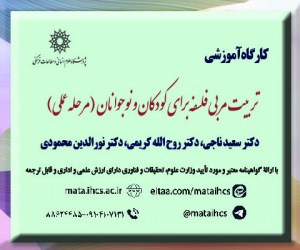شیوه های عملیاتی شدن استراتژی تغییر «باراک اوباما» در عرصه سیاست خارجی (مقاله علمی وزارت علوم)
درجه علمی: نشریه علمی (وزارت علوم)
آرشیو
چکیده
«باراک اوباما» با اعتقاد به سنت جفرسونی در سیاست خارجی، حفظ اصول انقلاب استقلال آمریکا را در گرو این می دانست که سیاست خارجی آمریکا کمتر فعال باشد تا آزادی و امنیت شهروندان آمریکایی در داخل به خطر نیفتد. بنابراین با انتقاد از سیاست مداخله گرانه جرج بوش استراتژی تغییر را انتخاب نمود. اوباما در دوران ریاست جمهوری خود با چندین مشکل تثبیت شده مانند تبعات حضور آمریکا در جنگ عراق و افغانستان و رکود بزرگ سال 2008 به عنوان مشکلات قدیمی و با موارد جدیدی مانند مداخله در لیبی، شورش های عربی و قدرت افزایی ایران در خاورمیانه مواجه بود.با توجه به تبعات رکود بزرگ در داخل آمریکا و تقویت نابسامانی های داخلی توسط آسیب های ناشی از استراتژی جنگ پیشگیرانه و مداخله های نظامی دولت جورج بوش، اوباما تصمیم گرفت تا با تأکید بر اولویت های ملی به جای اولویت های بین المللی تلاش نماید تا ضمن کاهش تعهدات آمریکا در خارج هم به مسائل داخلی آمریکا بپردازد و هم به احیای قدرت و نفوذ جهانی آمریکا مبادرت نماید.در این راستا پرسش اصلی پژوهش حاضر این است که اوباما استراتژی تغییر خود را چگونه عملیاتی نمود؟ در پاسخ به پرسش مذکور این فرضیه محوری مطرح می شود که تاکتیک های موازنه از راه دور، تأکید بر آسیای اقتصادی،چندجانبه گرایی، تعامل و مشارکت عمیق استراتژیک و به کار گیری منطق «دیپلماسی اول» شیوه های عملیاتی نمودن استراتژی تغییر اوباما بود. مفصل بندی دو نظریه بین المللی گرایی لیبرال و نهادگرایی می تواند حامی نظری مناسبی برای پژوهش حاضر باشد و سیاست خارجی اوباما را تبیین کند.Operational Practices of Strategy of Change in Barack Obama Foreign Policy
Barack Obama, believing in Jefferson's tradition in foreign policy, preserved the principles of the American Independence Revolution, felt that US foreign policy was less active so that the freedom and security of American citizens would not endanger the interior. So, criticizing George Bush's intervening policy, he chose a change strategy. During his presidency, Obama faced a number of consolidated problems, including the consequences of the US presence in the Iraq and Afghanistan wars and the 2008 Great Depression as old-fashioned problems, with new ones such as intervention in Libya, Arab revolts, and Iran's growing power in the Middle East. Given the consequences of the Great Depression within the United States and the strengthening of domestic disruptions by the damage caused by the preventive war strategy and the military interventions of the George W. Bush administration, Obama decided to focus on national priorities instead of international priorities, Reducing US foreign commitments to US domestic issues and to revitalize US global power and influence. In this regard, the main question of the present study is how did Obama act as a strategy for change? In response to the above question, it is hypothesized that long-distance balancing tactics, the emphasis on economic Asia, multilateralism, engagement, and deep strategic participation, and the use of the logic of "first diplomacy" were the modes of operating the strategy of Obama's change. The articulation of the two theories of liberal internationalism and institutionalism can be a good supporter of this research and explain Obama's foreign policy.



